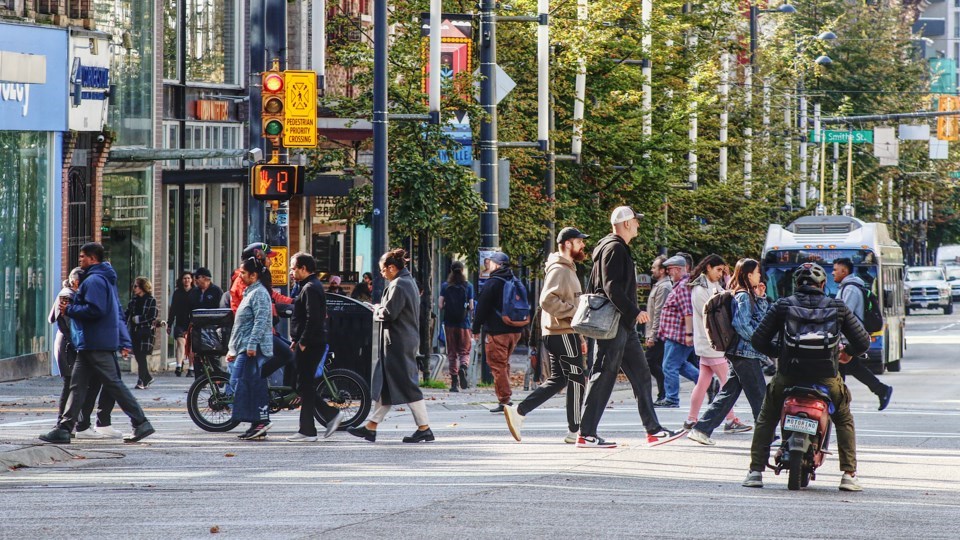Street crimes have put many B.C. small businesses under stress, and some said they won’t survive the next year if conditions don’t improve.
According to a recent survey released by the Business Improvement Association of British Columbia (BIABC), more than two-thirds (67 per cent) of business owner respondents reported an increase in street disorder over the past year.
Drug and mental health-related activity, homeless encampments, broken windows and doors, theft, violence and aggression are among the activities they’ve cited the most.
Nearly one in five (19 per cent) said they may not be financially viable beyond the next year if conditions remain the same — up two percentage points from last year.
“Small to medium-sized businesses in British Columbia continue to struggle…Some of the challenges are related to prolific criminality — not necessarily violent criminals, but non-violent repeat offenders,” said Jeremy Heighton, president of BIABC.
“They're becoming more and more serious from a mental health perspective for the business owner.”
Nearly three-quarters (74 per cent) of respondents said these conditions have increased fear and anxiety for staff who deal with them on a daily basis.
The survey also showed a financial impact — more than half of business owners surveyed reported reduced street traffic and customers, while 61 per cent cited higher operating expenses due to crime and vandalism.
Business owners have faced these challenges across the province for the past five to seven years, according to Heighton, adding that one Kamloops business owner told the organization he loses around $1,000 every day to shoplifting.
“Small businesses in British Columbia are being sucked dry, between criminality, vandalism, broken windows, significant costs…[and] the economic pressures of tariffs and all these other things going on,” said Heighton.
“We are absolutely not blaming those struggling with mental health, addictions or other issues. We are saying it is about time as a community to get a handle on a better health outcome system.”
Business group calls for changes
Heighton said immediate government action is needed to provide a safe, supportive environment for small businesses, who are already working hard to stay afloat.
The association is calling for a coordinated street management system in the province, with agencies sharing data on the individuals they encounter on the street.
“Right now, it is a hodgepodge of services. Some agencies have outreach workers, some municipalities have outreach workers, some bylaw officers do things, but there's no coordinated system,” Heighton said.
He also urged greater mental and physical health support along with housing solutions that help people in need progress toward stability and improved health.
In May, the B.C. government announced a $5-million initiative — the new Community Safety and Targeted Enforcement program — to strengthen police operations in addressing street crime and coordinate law enforcement, businesses, outreach teams and social services to tackle street disorder.
Heighton said in the longer term, changes to the criminal justice reform process are also needed, as many times shop owners cannot hold shoplifters or vandals accountable.
“The B.C. Police Act, bail provisions at the federal level, prosecutorial directions from Crown, as well as Supreme Court issues which challenge the judiciary to move forward on repeat crime, all have to be addressed,” he said.
“There's a lot that needs to be addressed, but I think that the key at stage one is, how do we deal with the daily issue on the doorstep in most of our impacted areas across the province?”
BIABC represents 80 business districts and more than 55,000 businesses in the province. The survey gathered responses from more than 350 business owners between late June and early July.


